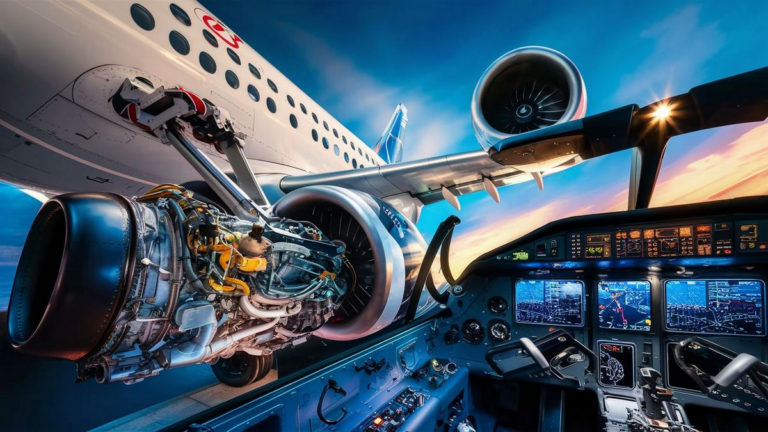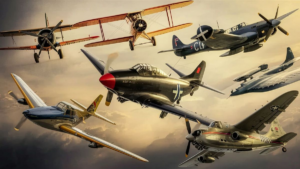In the realm of aviation, the capability of an aircraft to operate safely in various conditions is a paramount consideration. The Airbus A320, a widely used commercial airliner, is equipped with advanced technology and engineering to ensure its reliability and safety during flights. One intriguing question that often arises is: Can an Airbus A320 fly with just one engine?
The short answer is yes, an Airbus A320 is designed to operate with only one engine if the need arises. This ability, known as single-engine operation or one-engine inoperative (OEI), is a crucial feature that enhances the aircraft’s overall safety and performance. Let’s delve into the details of how this is achieved and the factors involved in such a scenario.
The Redundancy Factor
Modern commercial aircraft, including the Airbus A320, are equipped with redundant systems to ensure safe operations even in the event of an engine failure. The redundancy extends beyond engines to various critical systems, including hydraulics, avionics, and flight controls. This redundancy is a fundamental aspect of aviation safety and allows the aircraft to continue flying safely with one engine out of commission.
Engine Out Procedures
When an engine failure occurs, pilots follow specific procedures outlined in the aircraft’s operating manual. These procedures include adjusting the aircraft’s attitude, managing thrust on the remaining engine, and informing air traffic control of the situation. Pilots are extensively trained to handle such scenarios through simulator exercises, ensuring they can adeptly manage the aircraft with precision and safety.
Performance Considerations
While an Airbus A320 can fly with one engine, there are performance considerations that must be taken into account. The aircraft’s climb rate, speed, and range may be affected, requiring pilots to make adjustments to reach the desired altitude and continue the flight. However, the aircraft is engineered to maintain a safe and controlled flight even with a single engine inoperative.
Emergency Situations
Single-engine operation is often associated with emergency situations, such as engine failure during takeoff or climb. The aircraft’s design and the proficiency of the flight crew play pivotal roles in ensuring a safe resolution to such incidents. The Airbus A320’s fly-by-wire technology further enhances the aircraft’s controllability in challenging situations.
In summary, the question of whether an Airbus A320 can fly with one engine has a reassuring answer. The aircraft is meticulously engineered with redundancy and safety features, allowing it to operate safely in the rare event of an engine failure. The training and expertise of the flight crew further contribute to the overall safety of the aircraft in such situations.
Fuel Efficiency and Single-Engine Flight
Aside from the safety aspects, another noteworthy consideration in single-engine operation is fuel efficiency. Flying an Airbus A320 with only one engine might impact fuel consumption. Pilots often optimize their flight profiles to minimize fuel usage while maintaining a safe and controlled operation. This highlights the importance of fuel management strategies during single-engine scenarios.
Environmental Impact
Reducing fuel consumption not only benefits the airline economically but also aligns with environmental sustainability goals. Single-engine flight procedures and the associated fuel efficiency measures contribute to a lower carbon footprint during emergency situations. Airlines and aviation authorities continually emphasize the importance of adopting eco-friendly practices, even in challenging circumstances.
Frequently Asked Questions
| Question | Answer |
|---|---|
| Can passengers feel a difference during single-engine flight? | Passengers may not necessarily feel a significant difference during single-engine flight. The aircraft’s design and the skill of the pilots contribute to maintaining a smooth and controlled experience. |
| Are there specific routes or regions where single-engine flight is more likely? | Single-engine operation is not tied to specific routes or regions. It is a rare occurrence and can happen during various phases of flight, requiring pilots to follow established procedures for a safe outcome. |
| How often do pilots train for single-engine scenarios? | Pilots undergo regular and rigorous training, including simulator exercises, to prepare for various emergency scenarios, including single-engine operation. This training ensures their readiness to handle such situations with competence. |
See also:






